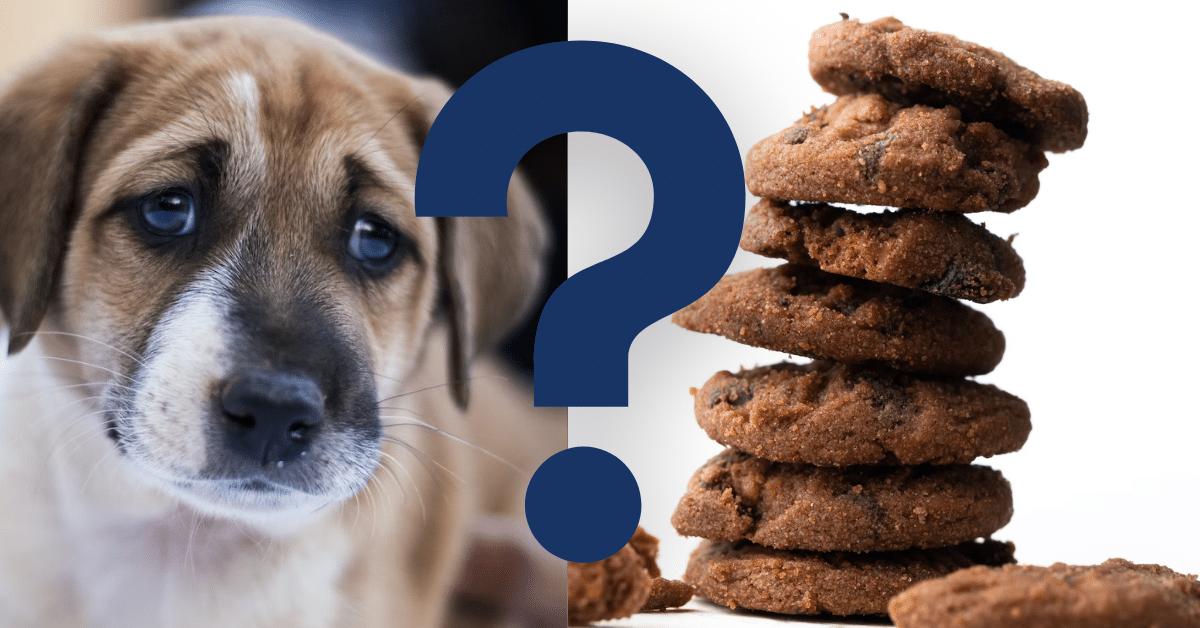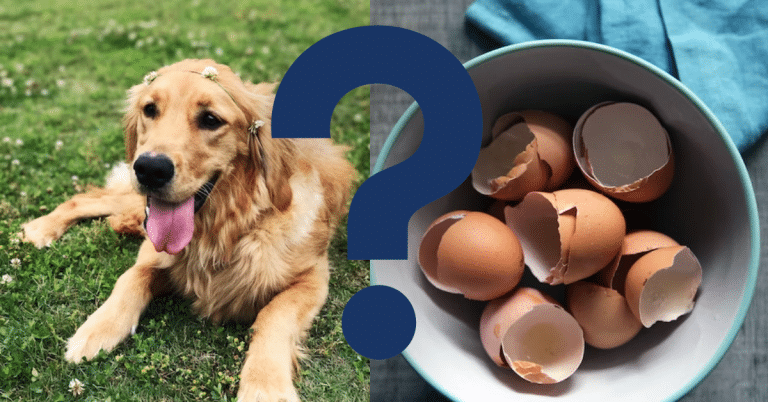Can Dogs Eat Biscuits? A Vet’s Summary

Biscuits are high in sugar, salt and fat content but can dogs eat them.
Making dog biscuits at home gives you control over the materials and the assurance that they’re secure. Online, there are several dog-friendly recipes that call for whole wheat flour, oats, peanut butter, and fruits. Due to their high sugar, salt, and fat contents, many human biscuits are unsuitable for dogs. Additionally, certain biscuits may have unhealthy components like chocolate or nuts. It’s better to refrain from feeding your dog human cookies.
Let’s dive in:
Benefits Of Biscuits For dogs
When chosen and administered properly, biscuits can provide dogs with several advantages:
- Training And Reward: Biscuits are frequently given out as rewards during training. They are practical incentives for good behavior and serve to teach compliance to orders and polite behavior due to their compact size and mobility.
- Dental Health: By assisting in the reduction of tartar accumulation and the maintenance of healthy gums, several biscuits are designed to enhance dental health. These cookies are frequently created with a somewhat abrasive feel to aid in scraping plaque off the dog’s teeth as it chews.
- Mental Stimulation: Some biscuits may be made to be puzzle treats or toys so that your dog must struggle to get the food out. Dogs may be entertained and kept interested by this cerebral stimulation.
- Nutritional Enrichment: When given in moderation, premium dog biscuits can supplement a dog’s diet with extra nutrients. To find biscuits that are healthy, look for those that have whole grains, lean protein sources, and extra vitamins and minerals.
- Sharing a cookie with your dog might help you two become more affectionate and closer. It enables you to create a favourable association and improve your bond with your pet.
- Digestive Health: Some biscuits have extra fibre or probiotics in their formulation, which can help dogs have a healthy digestive system.
- Weight Management: By serving biscuits in appropriate quantities as snacks, you may manage your weight and avoid overeating. Just remember to include the calories from goodies in the total number of calories your dog consumes each day.
Although there are advantages, keep in mind that there are also things to consider:
- Portion Control is important to avoid overeating, which can result in weight gain. Even nutritious snacks like biscuits should be consumed in proportion.
- Quality: Choose biscuits of the highest caliber, made with healthy ingredients and little additives. Avoid sweets that are too sugary, artificially colored, or high in fat.
- Nutritional Balance: A balanced dog food should be supplemented by biscuits, not substituted for it. Ensure that the main meal you feed your dog has all the essential elements.
- Any allergies or sensitivities your dog may have to substances in biscuits should be taken into consideration.
Consult your veterinarian before adding any new treats, including biscuits, to your dog’s diet, especially if your dog has any health issues or dietary restrictions.

How To Safely Give Biscuits To Dogs
A few crucial factors must be considered while providing dogs biscuits safely to protect their health and wellbeing. Here is a detailed instruction:
- Pick High-Quality Biscuits: opt for dog-specific or specially prepared biscuits that are safe for dogs. Choose products with healthy components, little additives, and no dangerous compounds. Avoid biscuits that are too sweet, salty, or have artificial flavors and colors.
- Make sure there are no substances like chocolate, raisins, grapes, onions, garlic, or artificial sweeteners like xylitol in the ingredient list by carefully reading the label.
- Check For Allergies: Make sure the selected biscuits don’t include any components that might cause a response if your dog has allergies or sensitivities that are known to him.
- Portion Control: Your dog’s daily calorie intake should not include too many treats, especially biscuits. When choosing treat quantities, take your dog’s size and energy requirements into account.
- Use Treats for Training and Rewards: Use cookies as reinforcements for good behaviour during training sessions. To avoid overeating and to prolong the enjoyment of the sweets, break the biscuits into smaller pieces.
- Avoid Overfeeding: Even nutritious snacks in excess can cause weight gain and nutrient imbalances. Record the goodies that your dog consumes throughout the day.
- Always keep an eye on your dog when they are eating a biscuit. This can lessen the risk of choking or any other problems while they are enjoying their reward.
- Select biscuits of the right size and consistency for your dog. While smaller dogs should consume smaller biscuits, larger dogs can manage larger ones. Think about your dog’s oral health as well. While certain biscuits are made to aid in tooth cleaning, they should still be safe to chew and not be too hard to harm your teeth.
- Introduce Slowly: Start with a modest bit of a new variety of biscuit to make sure your dog tolerates it well before providing more.
- Take Dietary Needs Into Account: If your dog has dietary requirements, such as those related to weight control or a sensitive stomach, pick biscuits that suit those requirements.
- Variety is important to keep your dog’s diet interesting and well-balanced, even if biscuits may be a fantastic reward choice.
- Consult your veterinarian often to discuss your dog’s treat intake and to obtain advice on the right kinds and quantities of treats for your dog’s individual requirements.
Keep in mind that each dog is unique, so what works for one dog might not work for another.
When putting new goodies, like biscuits, in your dog’s diet, it’s crucial to pay attention to their unique preferences, demands, and reactions.
Will Biscuits Make A Dog Sick?
If chosen and administered properly, biscuits are often harmless for dogs and shouldn’t harm them. However, there are a few circumstances in which biscuits can possibly be problematic:
Low-Quality components
Biscuits made with subpar components, too many artificial additions, or poisonous chemicals may cause stomach problems or other negative effects.
Overfeeding
In general, providing too many cookies or snacks might result in weight gain and digestive problems. Only a tiny amount of your dog’s diet should consist of biscuits.
Allergies And Sensitivities
Your dog may develop digestive distress, skin problems, or other adverse responses if they are allergic or sensitive to any of the components in the biscuits.
Choking Risk
Large or sharp-edged biscuits might be a choking risk, especially for smaller dogs or those that like to gulp down their food.
Dental Issues
Although certain biscuits are made to help clean teeth, particularly hard or rough cookies have the potential to lead to dental problems, such as chipped teeth or jaw discomfort, if they are not suitable for your dog’s size and dental condition.
Digestive Distress
As your dog’s digestive tract adjusts to the change, introducing a new type of biscuit abruptly and in excessive quantities may cause digestive distress.
Follow these recommendations to reduce the possibility that your dog may become ill from eating biscuits:
- Pick biscuits of superior quality that are made with healthy components and no dangerous additives.
- To prevent any potential allergies or harmful ingredients, carefully read the ingredient labels.
- As a little portion of your dog’s total, well-balanced diet, give him occasional biscuits.
- To reduce choking risks, cut bigger cookies into manageable pieces.
- To ensure that your dog chews and swallows the biscuits securely, keep an eye on them while they are eating.
- Gradually introduce different rewards, then watch your dog’s reaction.
- Know if your dog has any allergies or sensitivities that may have existed in the past.
- If you have any questions regarding the suitability of a particular brand of biscuit for your dog, speak to your veterinarian.
Keep in mind that every dog is different, so what is effective for one dog may not be effective for another. To guarantee your dog’s wellbeing, pay attention to their unique preferences and responses to various rewards.

A Vet’s Summary
Dog biscuits are often controversial among veterinarians. Even though some vets consider biscuits to be a treat that is permissible when provided in moderation and as part of a balanced diet, others may issue a warning owing to possible dangers.
Veterinarians may have the following opinions about feeding biscuits to dogs:
Pros
- Biscuits may be effective training and reinforcement methods, which is something that many veterinarians agree with. They can enhance the link between dogs and their owners and improve the efficiency of training sessions.
- Dental Health: Some veterinarians advise using dental-specific biscuits, which are intended to improve gum health and oral hygiene by decreasing tartar. These cookies frequently have a texture that helps dogs clean their teeth.
- Dogs can be mentally stimulated and relieved of boredom by eating certain biscuits, particularly ones that are interactive or demand some effort to swallow.
- Occasional Treat: When given in moderation and sometimes, biscuits may be a healthy way to provide dogs variety and happiness.
Cons
- Nutritional Imbalance: Many biscuits lack the critical components that a dog’s normal meal should include and are not nutritionally balanced. Too much reliance on biscuits might result in nutritional deficits.
- Overfeeding dogs’ biscuits can lead to weight gain, obesity, and other health problems in dogs.
- Digestive Upset: Giving new goodies, such cookies, to children in large quantities or abruptly might cause digestive upset, which can result in vomiting, diarrhea, or discomfort.
- Allergies and Sensitivities: Dogs may be allergic or sensitive to certain substances in biscuits, which might cause allergic responses or digestive issues.
- Quality and Safety: Some biscuits sold in stores may contain additives, fillers, and artificial substances that aren’t always good for dogs or safe for them.
- Dental issues: Eating very hard or rough cookies might be harmful to your teeth, increasing your risk of chipped teeth and other dental problems.
Probiotics can help maintain a gut environment that is more balanced, which may help dogs with bloating and excessive gas production. Some dogs have gut bacterial imbalances, which can lead to allergies or skin issues. Due to their ability to strengthen the immune system and reduce inflammation, probiotics may be able to aid with these problems.
In the end, a veterinarian’s recommendation will rely on the health, nutritional requirements, and general lifestyle of the dog. Before adding additional goodies, such as biscuits, to your dog’s diet, it is advised that you speak with your personal veterinarian. Based on the needs of your dog and any potential health issues, they may provide tailored advice.
Videos To Watch
If you are wondering whether dogs can eat biscuits, watch this:
If you are wondering whether biscuits are good for dogs, watch this:






